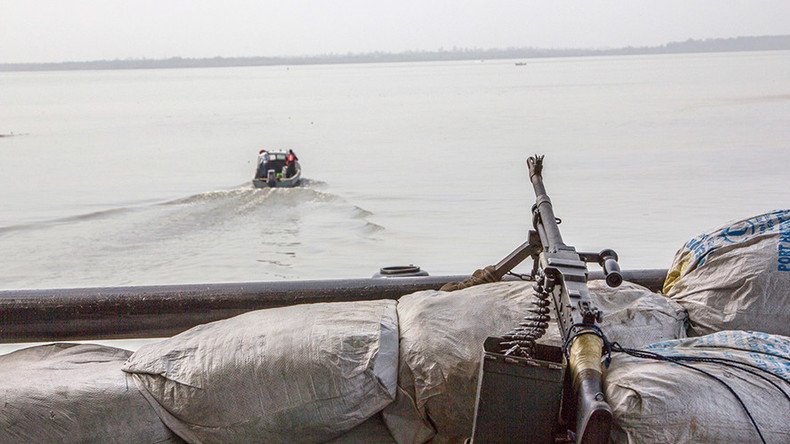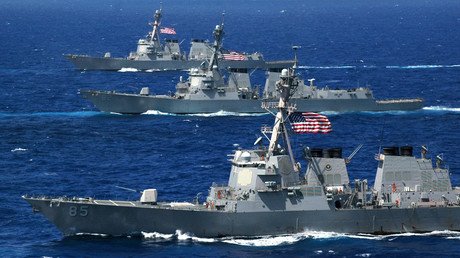ISIS wants own sea power to carry out attacks in Mediterranean, NATO naval chief warns

Islamic State militants want to build their own maritime force to carry out terror attacks on cruise or commercial ships in the Mediterranean Sea using sophisticated sea-based weapons, NATO’s naval commander warns.
The rise of Islamic State (IS, formerly ISIS) in the Mediterranean means it is striving to mount seaborne operations, endangering commercial and passenger sea lanes, the chief of NATO’s Allied Maritime Command, Vice-Admiral Clive Johnstone, said Thursday on board Spanish frigate Alvaro de Bazan, which docked in London for a scheduled port visit.
Russia to respond to NATO Black Sea force by deploying new weapons - report
“We know they have had ambitions to go off shore, we know they would like to have a maritime arm, just as Al-Qaeda had a maritime arm,” he warned, as quoted by Telegraph.
“NATO mustn’t think the Mediterranean is just about immigration. It is the spread along the North African seaboard, it is the Daesh [Arabic acronym for IS] entry into Libya, it is the Daesh control of Sirte and other places, which has an uncomfortable shadow over maritime trade and maritime access,” he added.
Johnstone did not provide any evidence for his claim, but claimed “really quite capable Korean, Chinese and Russian hardware” is finding its way to militant groups such as Hamas and Hezbollah.
Although he said those groups do not target non-military shipping, there is still a “horrible opportunity” in the future that “a misdirected, untargeted round of a very high-quality weapons system will just happen to target a cruise liner, or an oil platform, or a container ship.”
While noting the region has become increasingly militarized as different navies operate in the Mediterranean waters, Johnstone said NATO cannot afford to be “hustled out” in the eastern part of the sea where Russian Navy ships are present to support Moscow’s anti-terror operation against IS.
The Russian military maintains a naval task force off the Syrian coast as part of its operation to defeat IS, deploying several ships from different fleets. The task force includes the Black Sea Fleet flagship missile cruiser Moskva, and the anti-submarine destroyer Vice-Admiral Kulakov, along with several corvettes and support ships.
Moscow’s revised maritime strategy, introduced in July 2015, specifically mentions stepping up the Russian naval presence in the Black Sea, as well as in the Arctic and the Atlantic. New warships and submarines are also being commissioned for the Russian Navy to extend its regional and global reach.













